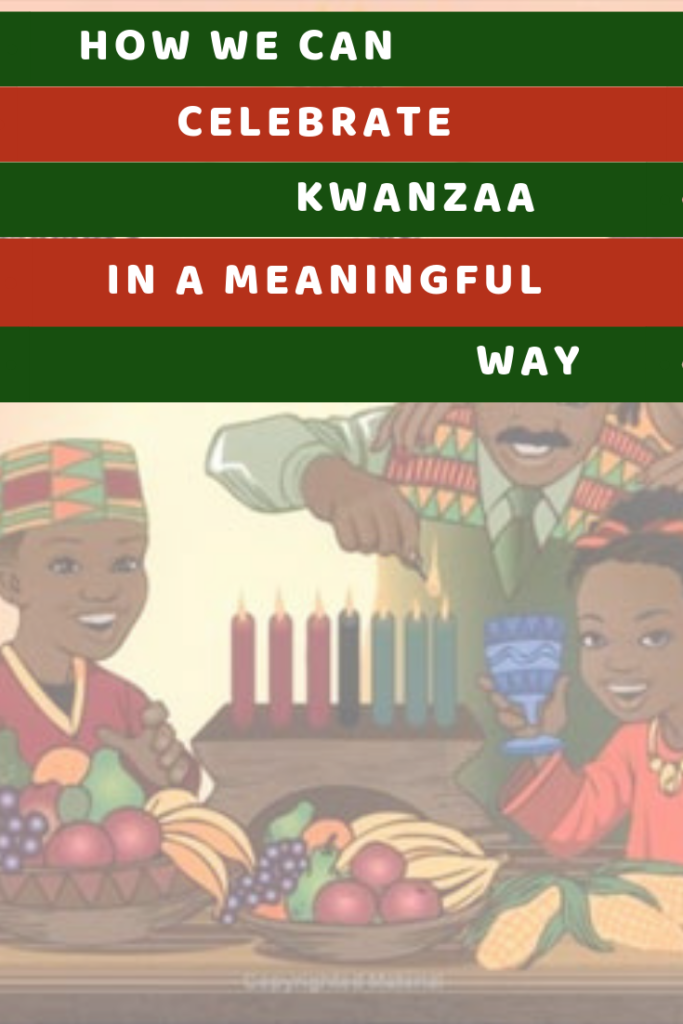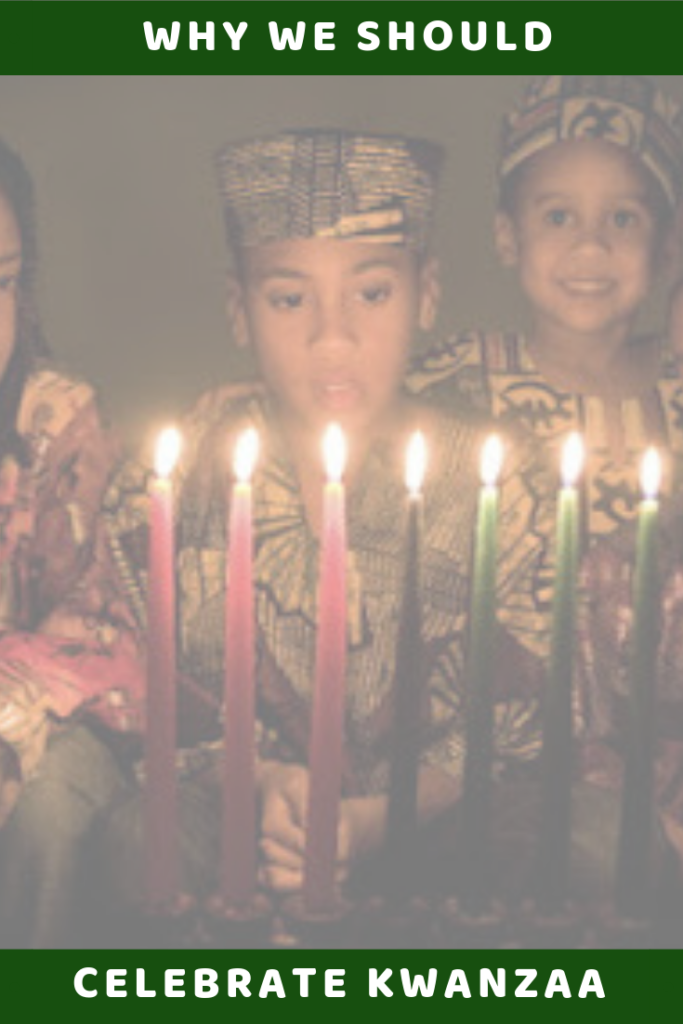
Today is the first day of Kwanzaa. Today, I light the black candle in the center of the Kinara to represent Umoja or Unity. Ironically, the first day of Kwanzaa, where we celebrate a sense of unity in our community and our country, comes in the middle of a government shutdown because we can’t resolve our differences as a country. I continue to celebrate Kwanzaa in my own way as a reminder to live my values in a meaningful way. The whole holiday is about mindfulness and setting intentions in a way that transcends religion.
Why celebrate Kwanzaa? I already celebrate Christmas, Boxing Day, and New Year’s, and adding something else to the plate is another burden, right? Wrong. Kwanzaa is a celebration of mindfulness that I have been celebrating since I was first introduced to it in college in the 1990s. Kwanzaa was born from a place of education and enlightenment. Following the painful Watts Riots of 1965, Kwanzaa was created to heal the trauma for a community and, by extension, a country, as we are all interconnected.
Is Kwanzaa a Black Thing?
Yes… and No. Kwanzaa is an American Holiday that celebrates the USA as part of the African Diaspora. We are all one nation and one people. E Pluribus Unum. I know many Americans of African descent who do not celebrate Kwanzaa. I also have many friends who are not Black who do celebrate Kwanzaa. So it is a personal choice. Its roots may date back to a time of Black pain, but it has evolved into a holiday that celebrates diversity in all its splendor.
Multiethnic children are the fastest-growing group in the USA. Celebrating diversity acknowledges that Americans do not want to have to choose. We do not want to be forced into boxes and narrow views of who we are. The holiday celebrates respect and understanding and encourages us to truly see each other.

Do we have to celebrate Kwanzaa by wearing African clothes?
It depends. Some people choose not to wear Kente cloth because it does not feel authentic to them. Some people who adhere strictly to the holiday use the traditional greetings and customs, including wearing Kente cloth. The typical greeting for Kwanzaa is “Habari Gani,” which is Swahili for “What is the news?” The traditional response is to recite the principle of the day. For today, that would be Umoja or Unity. The goal is to instill a sense of unity in your family, community, and nation. In an age of transracial adoption and multiethnic families, we can choose to focus on the pieces that hold us together rather than the differences that separate us as a community.
Do we have to celebrate for seven days?
Kwanzaa lasts for seven days, celebrating the seven principles, but you can choose to celebrate one or all the days. If you want to do the abridged version, you can gather with your family for the “Karamu” or big feast with your extended family on New Year’s Eve. The goal is to return to the values of ancestral people and strengthen our own internal guidance system. You can also celebrate traditionally by gathering as a family and lighting the kinara each day.
When you light the kinara, you say the name of the day and share your reflections on that day. You can use your creativity and share a song or poem. I like to recite “I Rise” by Maya Angelou on the second day of Kujichagulia. The second day is all about self-determination. Strengthening our commitment to who we are and manifesting our own destiny is the action item for the day.
What about the gifts?
Gifts for Kwanzaa are limited to handmade and educational gifts which we have purchased at a small local business. The trend is small and mindful. Gifts are given to all children in the family, blood-related or otherwise. Families within the African Diaspora tend to be inclusive and honor emotional ties as well as physical ones.
A critical point in the Kwanzaa celebration is the observance of children as the treasure of a family. Children are treated as the “first fruits” or the best that a family has to offer. Traditional celebrations include placing an ear of corn for each child on the ceremonial mat. Elders in the family are also given a place of honor. Elders are seen as the root of the family tree, and gratitude is expressed for their sacrifice.
As you can see, there are many reasons to celebrate Kwanzaa regardless of race. Namaste, y’all!



